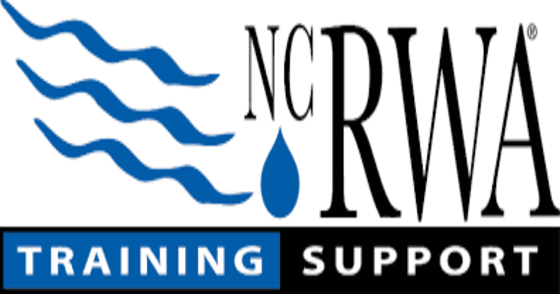How many times a day do you use water?
Morning showers, preparing a pot of coffee or washing dishes after a meal are just a few of the many ways we use water throughout the day. We turn on the spigot and expect clean, safe water to come flowing out.
But it takes a lot of work to ensure our water is potable and safe to use, and Carolyn Bynum of the N.C. Rural Water Association has a startling statistic for all of us: Over the next five years, water systems will lose more than half of their current employees, mostly through retirement.
And so just who is stepping up to fill those jobs?
NCRWA’s apprenticeship program works year-round to identify prospective employees and place them in paid positions, creating a win-win situation for people who want to work in the field and for those water systems who need employees.
People who work in water system plants and wastewater plants are very essential front-line workers, she noted. “If we don’t have clean water, everything dies,” Bynum said. “It sounds drastic, but in reality, it’s true,” she added.
Bynum is the NCRWA’s workforce development coordinator and she explained the apprenticeship program to John C. Rose on Monday’s TownTalk.
The program functions much like traditional apprenticeships, with one big exception – the NCRWA apprentices are paid while they complete the extensive classroom instruction and on-the-job training.
Her agency has placed 20 apprentices in the three years or so since the apprenticeship program was registered with N.C. Department of Labor. Three more apprentices just completed the two-year process and they’ll be placed soon, too.
And although apprentices will be learning the intricacies of the water industry, Bynum said NCRWA strives to provide participants with occupational training that can be applied across workplaces, not just the water industry.
“We want them to have a broad view of the industry,” she said. There’s a huge growth potential in the industry that often goes unnoticed by those entering the work force.
Applications can be submitted at any time; Bynum said the industry is always looking for qualified workers to make sure customers have clean water.
She said she gets calls all the time from water systems asking for help finding employees.
The apprenticeship program allows new employees to gain experience as they learn from seasoned workers. “You don’t want to wait until they retire,” she said.
After an application is submitted, the process continues sort of like a job interview. Candidates must be at least 18 years old and have a high school diploma or its equivalent.
Apprentices complete 288 hours of classroom instruction and 4,000 hours of on-the-job training during the two-year program.
At the end of each 1,000-hour period, apprentices are required to meet milestones to show progress. This successful completion every six months or so results in a wage increase.
It’s a plus if a candidate has good math skills, but Bynum said her agency provides supplemental services to shore up basic math skills when needed. “Math is such a huge part of the industry,” she said. There are always charts to read, measurements to take and gauges to monitor to ensure systems are functioning properly.
Water systems and water treatment systems operate 24 hours a day, seven days a week, 365 days a year, Bynum said.
“It’s recession proof.”
Visit www.ncrwa.org to learn more or contact Bynum at 743.202.0971 or apprenticeship@ncrwa.org.
CLICK PLAY!
